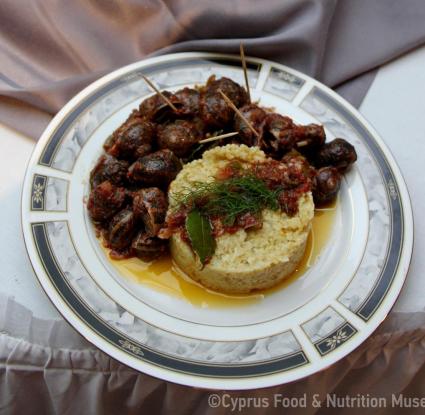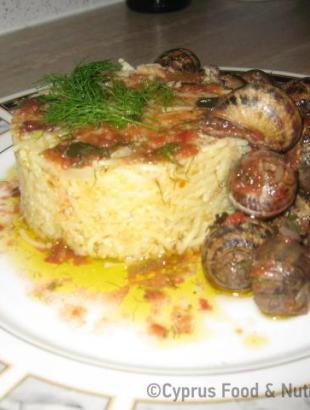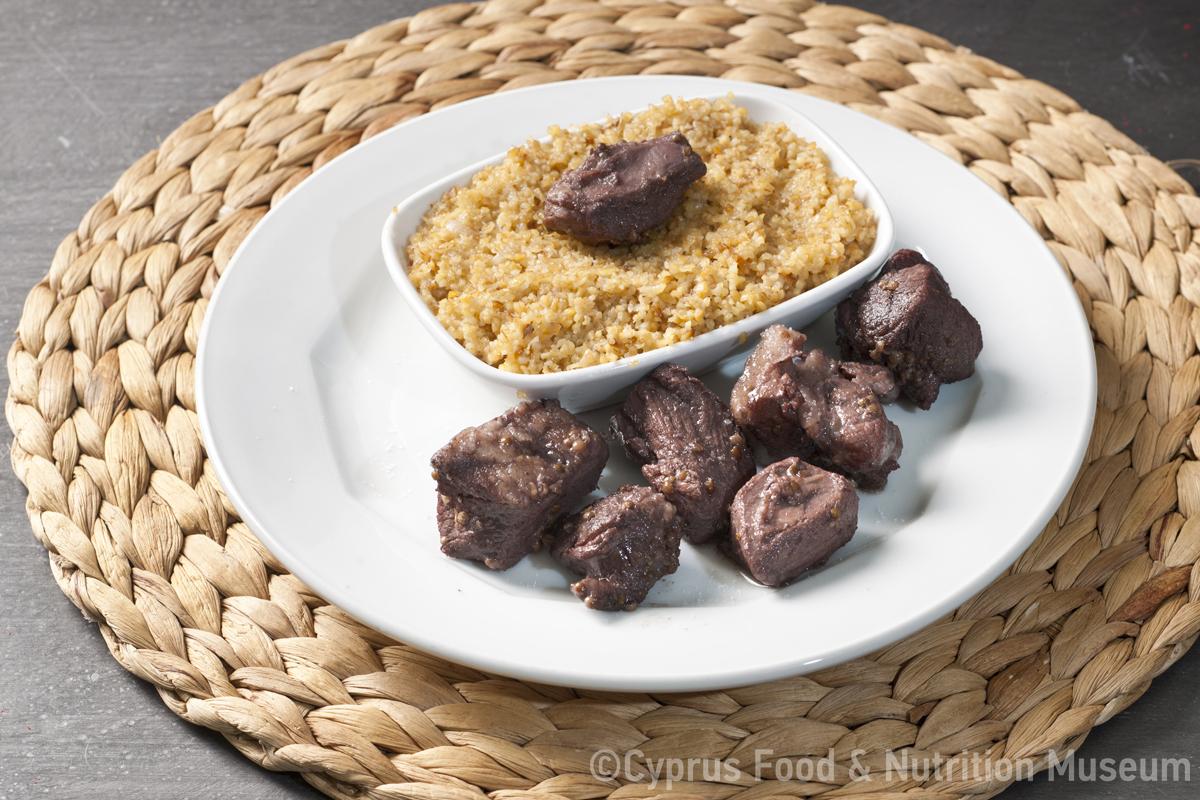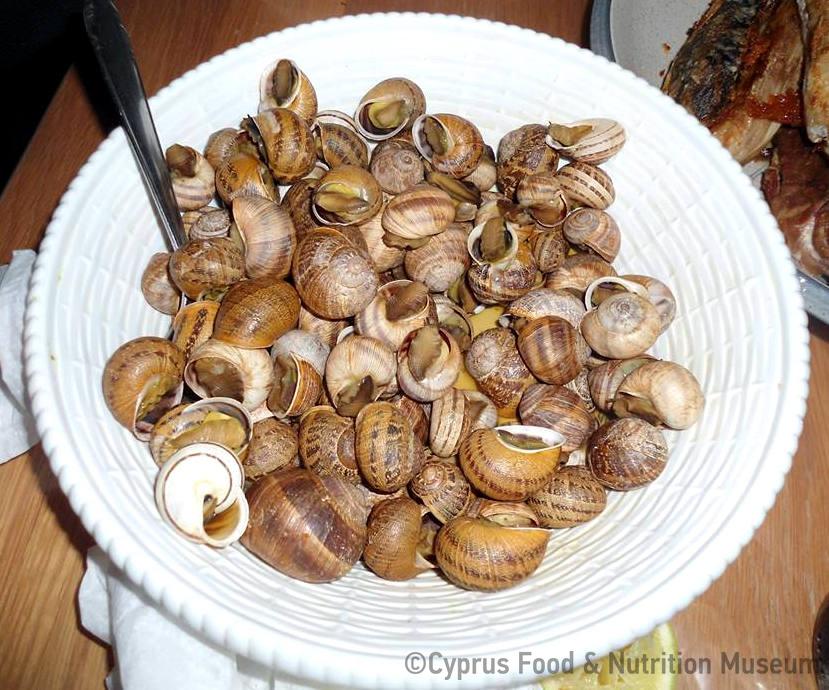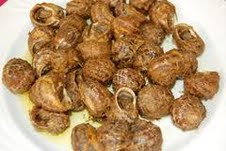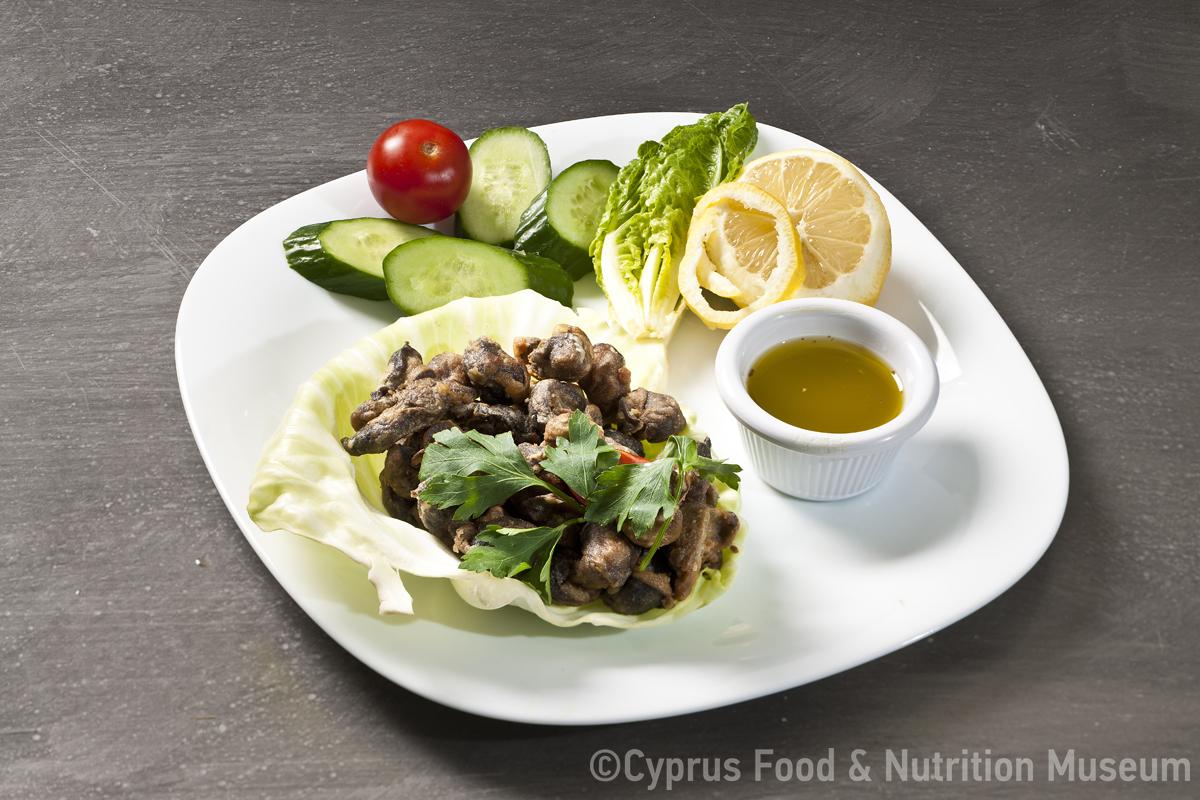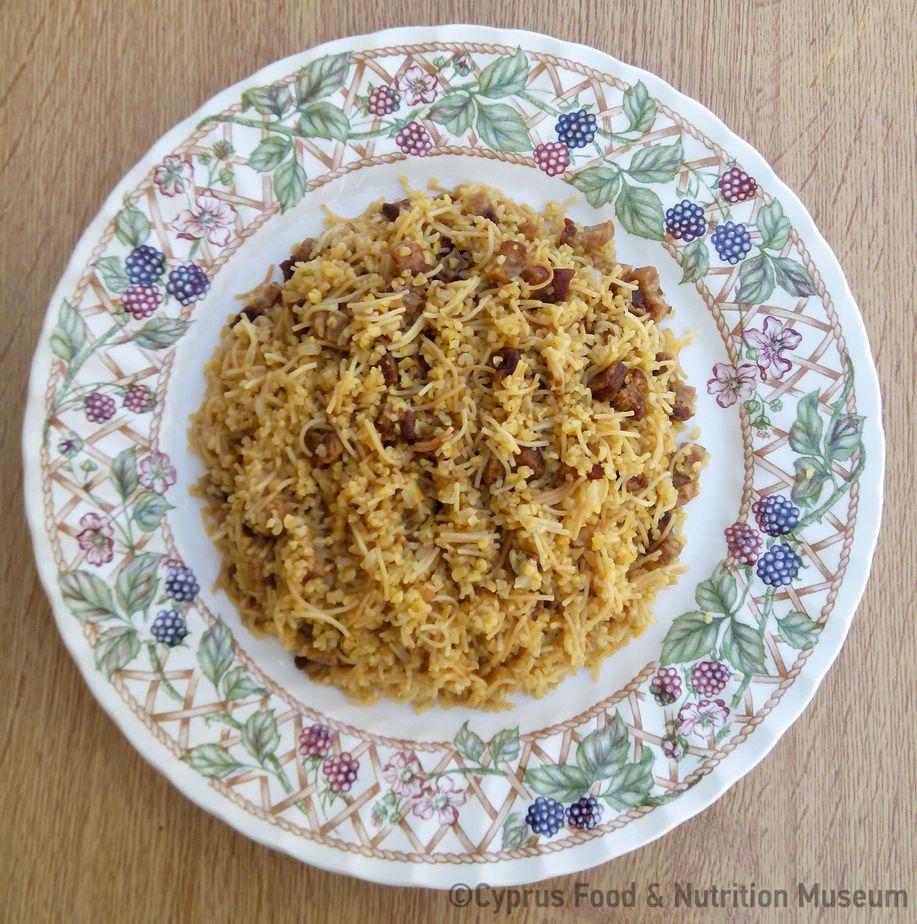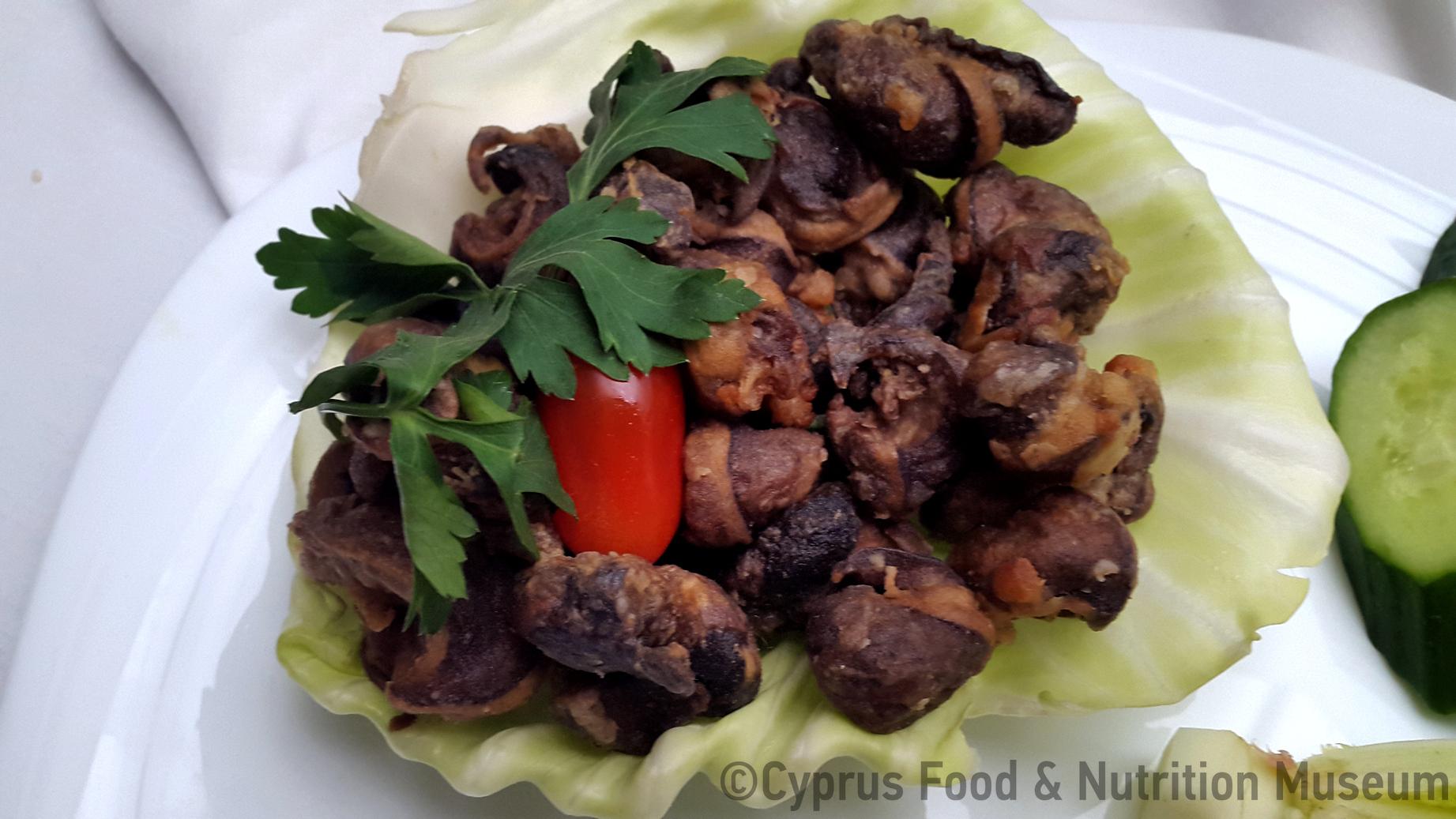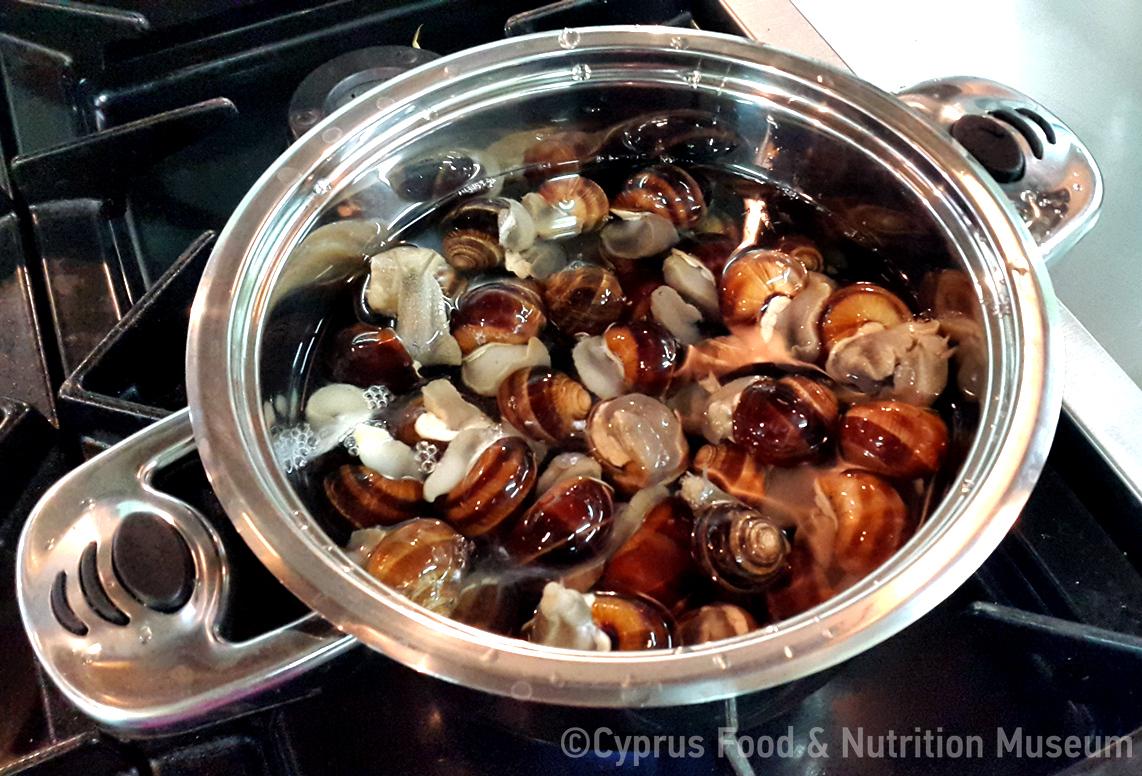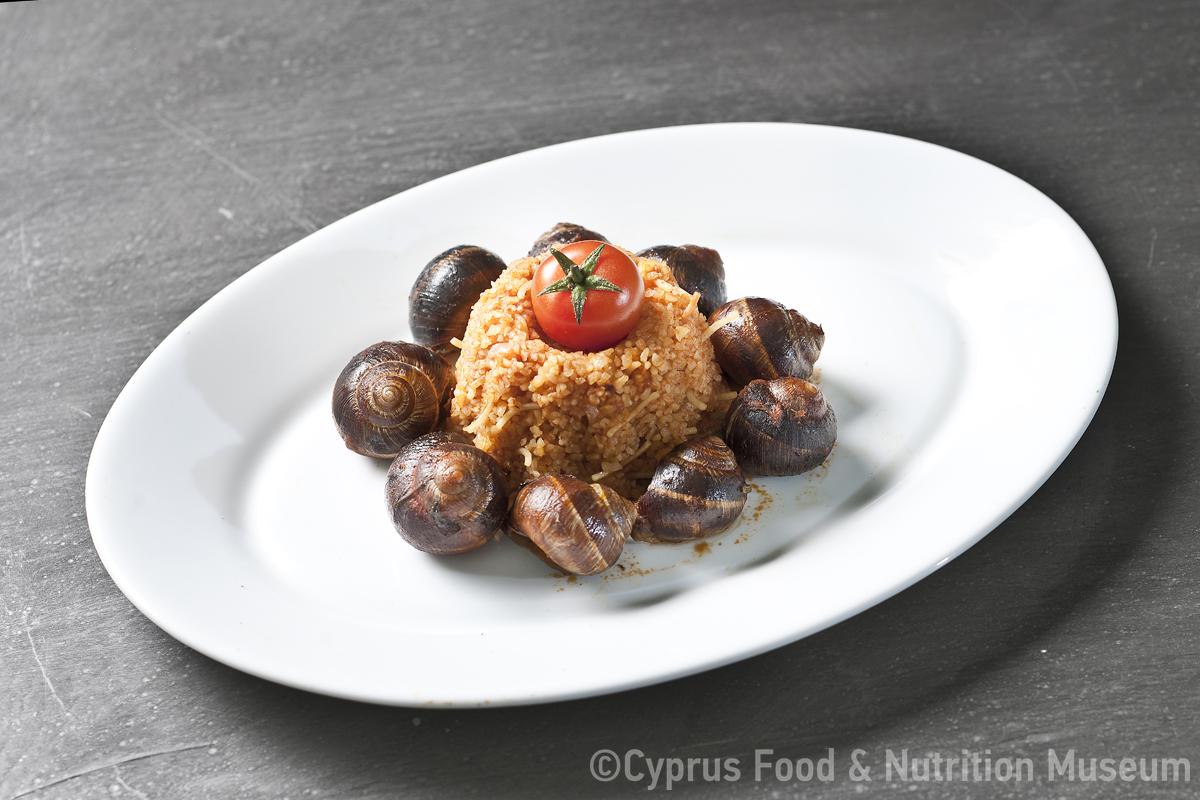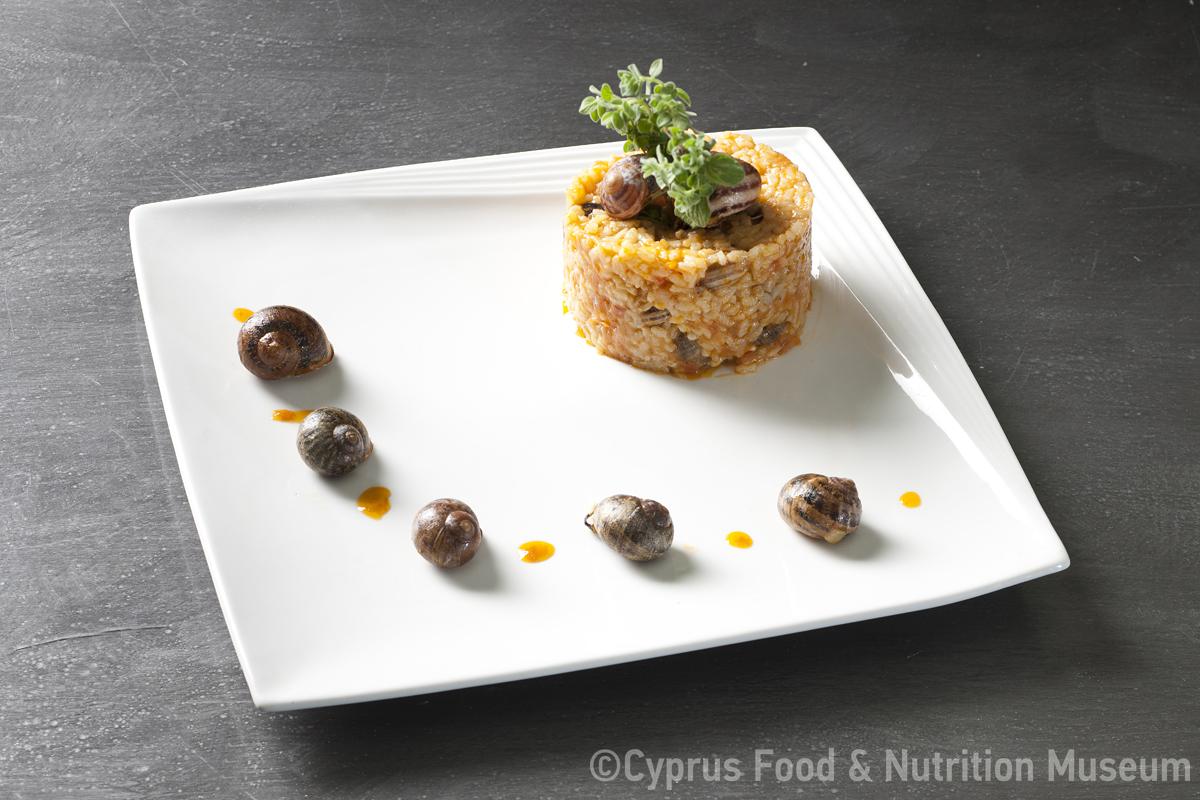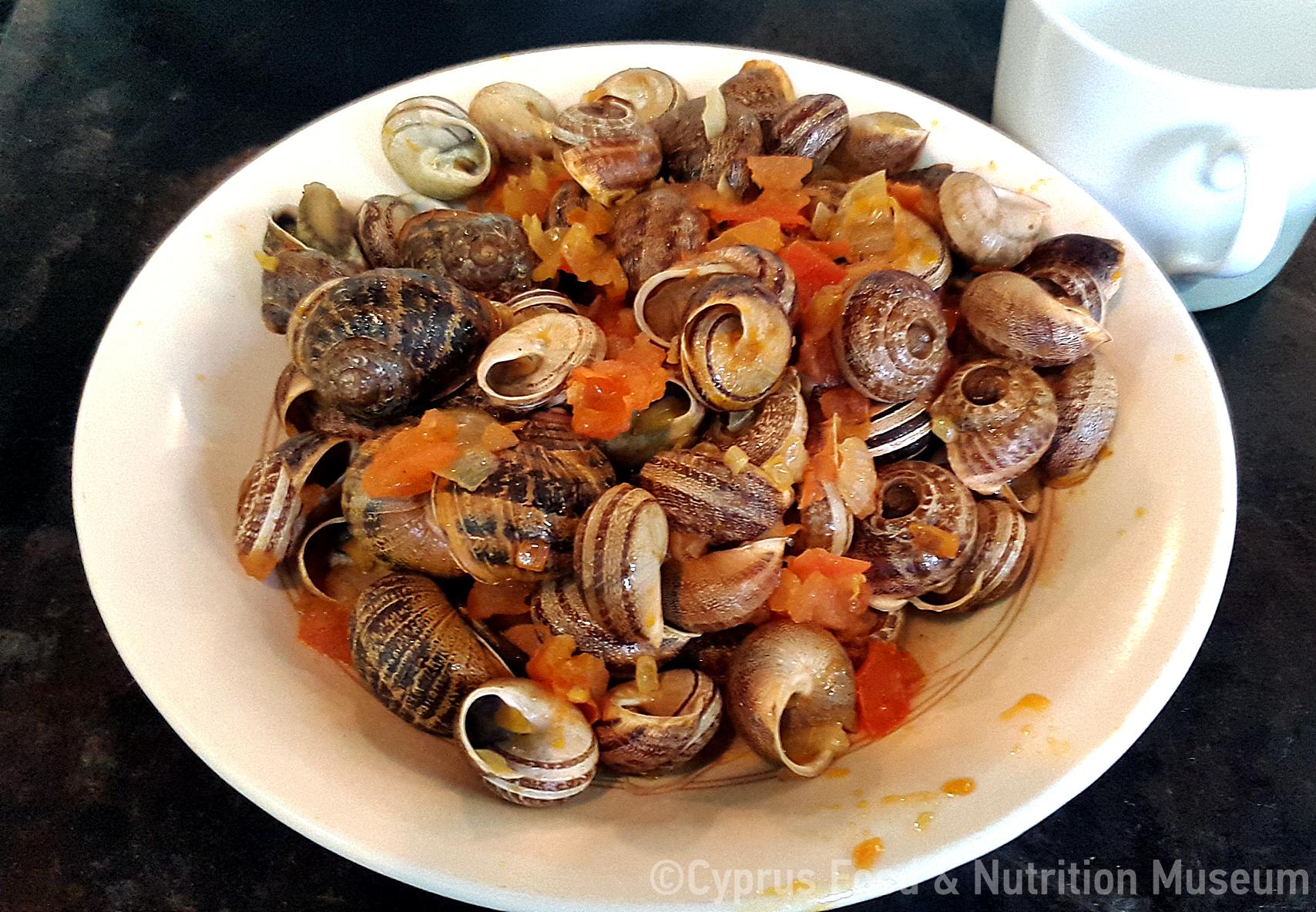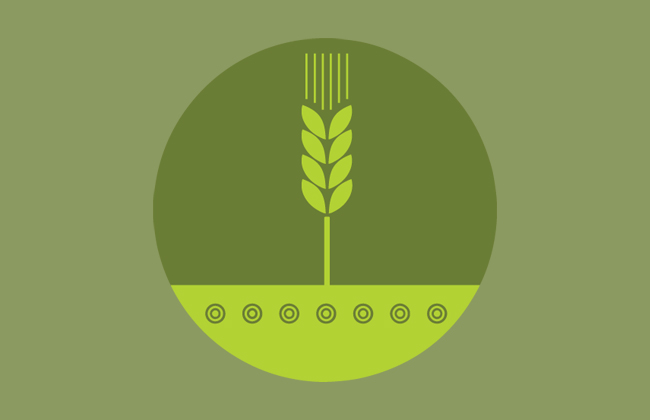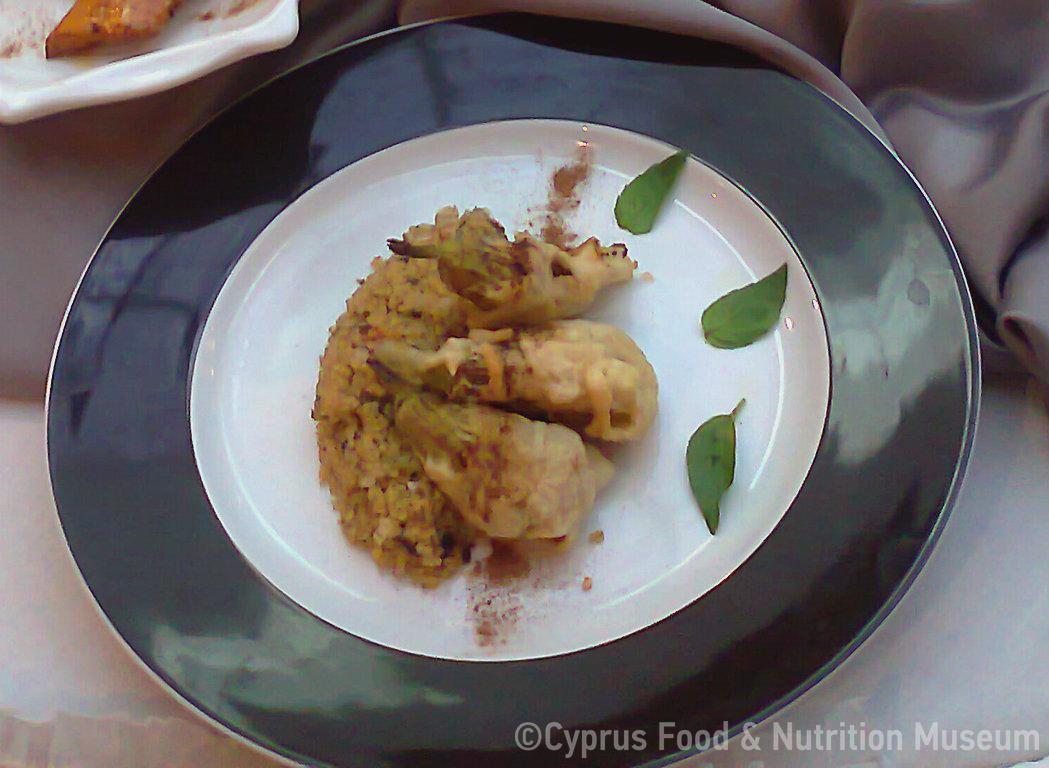Snails in wine and tomato sauce with pilaf bulgur, a dish prepared all over Cyprus. Cypriots have been using snails as part of their diet since ancient times. They would cook them mostly during fasting periods.
Name - Recipe
Σαλιγκάρια κοκκινιστά με πιλάφι πλιγούρι.
For the snails:
30-35 snails
2-3 tbsp vinegar
½ cup of bitter orange juice
2 cloves of garlic, finely chopped
3-4 spring onions, finely chopped
2-3 fennel stalks, finely chopped
2-3 large ripe tomatoes grated or 1 cup of tomato juice
½ cup olive oil
¼ cup red dry Cypriot wine
1 cinnamon stick
2 bay leaves
Salt, pepper
For the pilaf bulgur:
5 tbsp olive oil
1 cup of bulgur wheat
1 medium onion, finely chopped
½ cup vermicelli
2 cups of water
Salt
Preliminary work: Put the snails in a basket fro 3-4 days with a sprig of thyme, 2-3 sprigs of rosemary and bran or flour to clean them. Cover the basket to keep them from escaping. Wash the snails very well and put them in a pot of cold water, just enough to cover them. Place the pot over low heat. Gradually, the snails pull their heads out of the shell. Immediately increase the heat so that the snails' heads stay out. During the boiling process, pour in the vinegar and skim off the foam. Continue boiling for 10 minutes. Change the water, add the bitter orange juice and salt and leave the snails to cook over high heat for about 30 minutes. Keep skimming off the foam until the water is clear. Remove from the heat and wash the snails thoroughly in a colander.
Cooking the snails: Plave a pan over medium heat and add the olive oil. Once the oil is hot, add the onion, garlic and fennel and sauté. Add the snails and stir for a few minutes. Add the wine, tomato juice or grated tomatoes, cinnamon stick, bay leaves and finally some salt and pepper. Cover the pan and simmer for a while. Stir occasionally until a slightly thick sauce is formed. Remove from the heat and cover the pan so that the snails can absorb the aromas.
For the pilaf bulgur: Place a saucepan over medium heat and dd the olive oil until it is hot. Add the onion and sauté. Add the vermicelli and stir until lightly browned and add the bulgur. Add the water and stir until it is absorbed by the bulgur. Add the salt and remove the pan from the heat. Cover the pan with a kitchen towel until serving time. (Evangelos Roouss, Cooking Cypriot food 2013-2014)
Boiling.
Sautéing.
Simmering.
Cooking in a pot.
Useful tips and information:
1. Put the snails in a bucket with water for a few hours. If they don't get their heads out of their shells, they may not be alive, so avoid cooking them.
2. Snails should not be overcooked as it will be difficult to get them out of their shells.
3. Vinegar, salt and bitter orange juice help to get all the snails' drool out in the form of foam.
(Evangelos Roous, Cooking Cypriot food 2013-2014)
Functional and symbolic role
Snails are molluscs with lots of protein and are cooked mostly during fasting periods. Cypriots, being in the Mediterranean, have long consumed snails as part of their diet. Our grandparents used to collect snails from the countryside with great pleasure and enjoyment. They would wait for rain or humidity at night, because they knew that snails would come out when there was humidity. In fact, they used to collect the smaller and whiter snails with more delicate shells, and cut off their backsides in various ways. Although the collection of snails was a very time-consuming process, they did not mind this at all, for it was their recreation from their agricultural activities. They were particularly attentive in selecting the area from which to collect the snails. The area had to be pristine, away from paved roads and fields with pesticides. Due to pesticides, snails are now scarce. The recipe, mentioned here, is old and is made all over Cyprus. The ingredients are cheap and easy to find. The snails used are free-range and because of their diet, which is composed of herbs and plants, they are rich in minerals, amino acids and beneficial fatty acids. (Evangelos Roous, Cooking Cypriot food 2013-2014)
Additional information and bibliography
Recording: Evangelos Roous (18 years old, student of the M. Koutsofta & A. Panagidi Paliometocho Lyceum) from the narration of his mother, Stella Damala. See Cyprus Food and Nutrition Museum (2014) Cooking Cypriot food 2013-2014 (ed. Petroula Hadjittofi), unpublished data.
Petroula Hadjittofi

